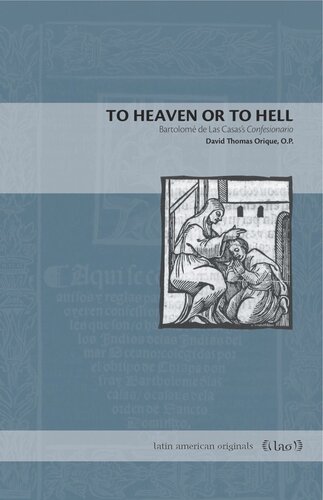

Most ebook files are in PDF format, so you can easily read them using various software such as Foxit Reader or directly on the Google Chrome browser.
Some ebook files are released by publishers in other formats such as .awz, .mobi, .epub, .fb2, etc. You may need to install specific software to read these formats on mobile/PC, such as Calibre.
Please read the tutorial at this link: https://ebookbell.com/faq
We offer FREE conversion to the popular formats you request; however, this may take some time. Therefore, right after payment, please email us, and we will try to provide the service as quickly as possible.
For some exceptional file formats or broken links (if any), please refrain from opening any disputes. Instead, email us first, and we will try to assist within a maximum of 6 hours.
EbookBell Team

4.0
56 reviewsThis volume is the first complete English translation and annotated study of Bartolomé de Las Casas’s important and provocative 1552 treatise commonly known as the Confesionario or Avisos y reglas. A text that generated controversy, like Las Casas’s more famous Brevísima relación, the Confesionario outlined a strikingly novel and arguably harsh use of confession for those administering the sacrament to conquistadores, encomenderos, slaveholders, settlers, and others who had harmed the indigenous people, thus using magisterial authority and jurisdictional power to promote restitution.
David Orique addresses how, from 1516 to 1547, Las Casas subscribed to and wrote about the theory and practice of the doctrine of restitution. He then presents the specific historical context of the development of the initial manuscript of the Confesionario in 1547 as Doce reglas (Twelve Rules), which later became the augmented Confesionario manuscript. Orique’s commentary on the 1552 Confesionario treatise highlights how Las Casas’s Argumento, and its approval by theologians, legitimates his work. Orique outlines the various guidelines proposed to confessors to identify, investigate, and seek restitution from offending Spaniards based on their possessions and circumstances. He also explores Las Casas’s use of the Thomistic tripartite scheme of divine, natural, and human law.
With insightful analysis and commentary accompanied by an eminently readable translation, To Heaven or to Hell will be especially useful to students and scholars of Latin American colonial history, early modern religion, and Catholic studies.